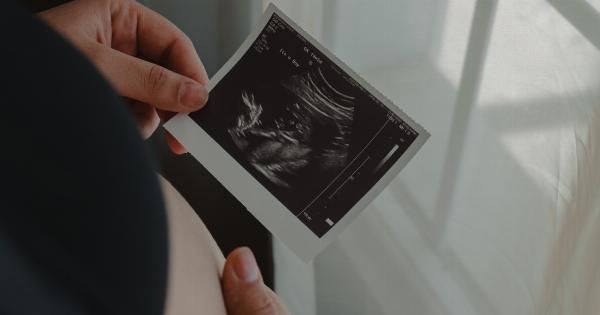One of the most exciting times in a woman’s life is pregnancy. However, it can also be one of the most challenging, especially when it comes to managing discomfort.
Pregnancy comes with several physical and emotional changes that can be overwhelming. Nausea, fatigue, and body aches are just some of the common discomforts that women experience. The good news is that there are effective ways to manage these discomforts.
In this guide, we will discuss some of the easiest and safest ways to alleviate discomfort during pregnancy.
1. Nausea and Vomiting
Nausea and vomiting are common symptoms of pregnancy that affect most women. These symptoms can be caused by a variety of things including hormonal imbalance and changes in body chemistry. To manage nausea and vomiting, try the following tips:.
- Eat small, frequent meals throughout the day
- Avoid foods that trigger your nausea
- Stay hydrated by drinking plenty of fluids
- Avoid spicy or fatty foods
- Get plenty of rest
2. Fatigue
Fatigue is one of the most common discomforts during pregnancy. It is caused by the hormonal changes in the body and the extra weight that comes with pregnancy. To manage fatigue, try the following tips:.
- Get plenty of rest and take naps whenever possible
- Eat healthy food that keeps you energized
- Regular exercise helps reduce fatigue
- Delegating tasks to others and taking time for yourself
3. Back Pain
Back pain is another common discomfort during pregnancy. It is generally caused by the extra weight and pressure on the back from the growing fetus. To manage back pain, try the following tips:.
- Practice good posture
- Use a pregnancy support pillow while sleeping
- Exercise regularly to strengthen core muscles and improve posture
- Avoid standing or sitting in one position for long periods of time
4. Leg Cramps
Leg cramps are a common discomfort during pregnancy, especially during the third trimester. These cramps are usually caused by the pressure on the blood vessels in the legs. To manage leg cramps, try the following tips:.
- Regular exercise that helps improve blood circulation
- Stretching exercises can help relieve leg cramps
- Stay hydrated by drinking plenty of fluids
- Adding more calcium, magnesium, and potassium to your diet can help reduce cramps
5. Heartburn and Indigestion
Heartburn and indigestion are common discomforts during pregnancy. They are caused by the hormonal changes in the body and the pressure of the growing fetus on the stomach. To manage heartburn and indigestion, try the following tips:.
- Eat small, frequent meals throughout the day
- Avoid spicy and greasy foods
- Avoid lying down for at least two hours after eating
- Wear loose-fitting, comfortable clothing
6. Swelling
Swelling, also known as edema, is a common discomfort during pregnancy, especially in the last trimester. It is caused by the increased pressure on the blood vessels and fluid retention. To manage swelling, try the following tips:.
- Avoid standing or sitting for prolonged periods
- Wear comfortable, supportive shoes
- Get plenty of rest and elevate your feet whenever possible
- Drink plenty of water
7. Anxiety and Stress
Anxiety and stress are common discomforts during pregnancy. Fear of labor, financial worries, and concerns about the future are all common causes of anxiety and stress. To manage anxiety and stress, try the following tips:.
- Practice relaxation techniques, such as meditation and deep breathing
- Avoid stressful situations
- Talk to a therapist or counselor
- Exercise regularly to reduce stress and anxiety
Conclusion
Pregnancy discomforts are a natural part of the pregnancy experience, but they don’t have to be unbearable. With these simple tips, you can reduce the discomforts that come with pregnancy and enjoy this special time in your life.
However, if any discomfort persists, it is always best to consult a healthcare provider. In the next part of this guide, we will explore other effective ways to manage pregnancy discomforts.































